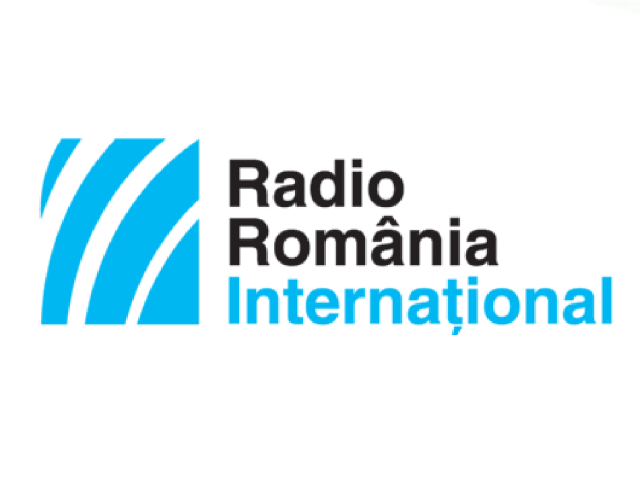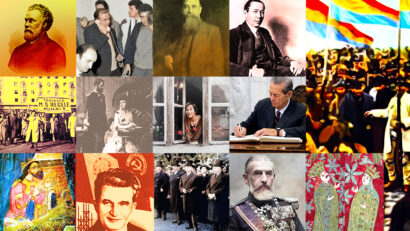The “Ellenpontok” Samizdat
The only “samizdat circulating in Romania that went beyond its borders was “Ellenpontok, or “Counterpoints

Steliu Lambru, 19.03.2018, 14:31
It was written by a group of Hungarian intellectuals made up of a biology teacher from Oradea, Antal Karolyi Toth and his wife Ivona, poet Geza Szocs of Cluj, and philosopher Attila Ara-Kovacs, who came up with the idea. The manuscript circulated outside Romania with support from the anti-communist opposition in Hungary.
Csongor Janosi, a researcher with the University of Bucharest Research Institute, looked closely into the case of the “Ellenpontok samizdat. He told us about the case: “Why did this samizdat appear in Oradea, and not in Cluj or Targu Mures? The answer, in addition to the personal motivation of the writers, was closely linked to the failed attempt of creating a Hungarian cultural magazine in the summer of 1980. The group filed a memorandum with the Communist Party Central Committee and with the Bucharest Writers Union to create a magazine with its own editorial offices, such as Korund of Cluj or Igaz Szo of Targu Mures. The back up plan was for the publication to be printed as a supplement to the Romanian language culture and literature magazine ‘Familia’, in Oradea.
According to Janosi, this was the key moment, the moment that the writers decided to do something illegally, failing the legal course. 28 year old Ara-Kovacs convinced Szocs to take part in writing the samizdat, and the Toths joined them in 1982.
Csongor Janosi talked to us about how the magazine took off the ground: “Editorial activity started in February 1982. The biggest part of the texts were collected by Ara-Kovacs, the editors in Oradea handled the structuring and multiplication of the magazine, as well as its distribution in Oradea and Hungary, while Szocs dealt with distribution in the Cluj area and in Szekely country. The principle the editors guided themselves by was to talk openly about how they lived at that time. Ara-Kovacs wrote a text on general topics that appeared on the second cover of each issue. The first part of this text can be seen as the credo of the magazine, and my summary of it would be as follows: ‘Counterpoints’ is a samizdat publication, it appears occasionally, we want to make known the human rights violations in Central and Eastern Europe, and, within that, the political, economic and cultural repression of Hungarians in Transylvania.
The magazine was inspired by Hungarian and Polish samizdat publications, and by the opposition movements in those countries. A third of the articles appearing in “Ellenpontok were taken over from foreign samizdat magazines, and half of the original articles were written by Ara-Kovacs.
Csongor Janosi told us about the way the magazine was printed, and about its contents: “The first six issues were typed as five copies each on a clandestine typewriter brought over from Hungary. Since it was not registered with the police, the publication could not be traced back to it. The first five issues were written by Ara-Kovacs and typed by Ivona Toth, while the sixth issue belonged to Antal Karolyi Toth. Issues 7 and 8 were made into 50 copies by the Toths in their cellar using a Polish copying device. The issues of the magazine had between 14 and 56 pages. The 8th issue appeared in October 1982, was made by Antal Karolyi Toth, and includes the memorandum and the political platform proposal. The two documents put forward alternative political demands, criticizing the eastern European political regimes. These documents became known because, by various means, they were sent to the embassies of the United States, Great Britain, Finland, France, West Germany, and Austria. The two documents also reached the Madrid meeting of the OSCE, whose agenda included improving relations and the implementation of the Helsinki Accords.
Between March and October 1982, 8 issues appeared, in 65 copies, a total of 293 pages. The last issue, the 9th, had 24 pages. The Hungarian section of Radio Free Europe started to popularize the samizdat, prompting the Securitate, the former political police, to actively seek the authors of the clandestine publication. Shortly after, in the autumn of 1982, the Securitate in Cluj searched the Szocs residence, finding the source of the magazine. They then searched the residence of the Toths in Oradea, and the homes of people who had received the magazine.
Csongor Janosi once again: “What is very interesting is that the makers of the ‘Counterpoints’ magazine were not arrested, and could defend themselves at large. In January, February and March of 1983 they were called in to sign statements, and finally, on May 17, 1983, their case was closed and they were acquitted. Everyone involved was called to Securitate headquarters in Cluj and Oradea, and were issued a warning. No criminal indictments were issued, reason being that it did not serve the regime for the samizdat to turn into a notorious case, turning the people involved into martyrs.
The story of those involved in the “Ellenpontok events predictably ended with emigration. In 1983 Ara-Kovacs moved to Hungary, followed by the Toths in 1984. Szocs fled to West Germany in 1986, but returned to Cluj after 1989.





























